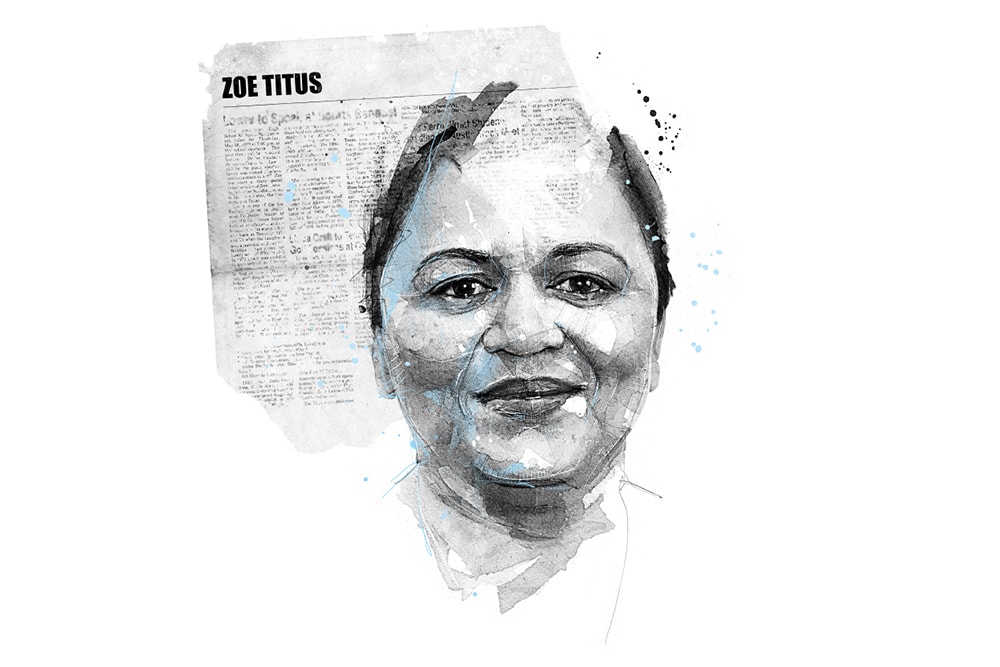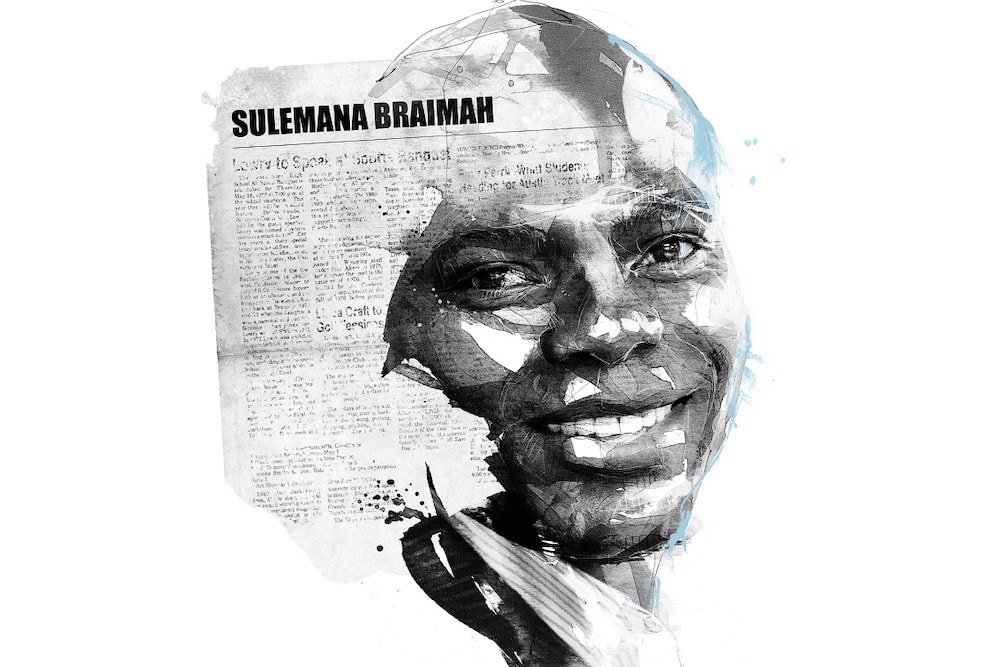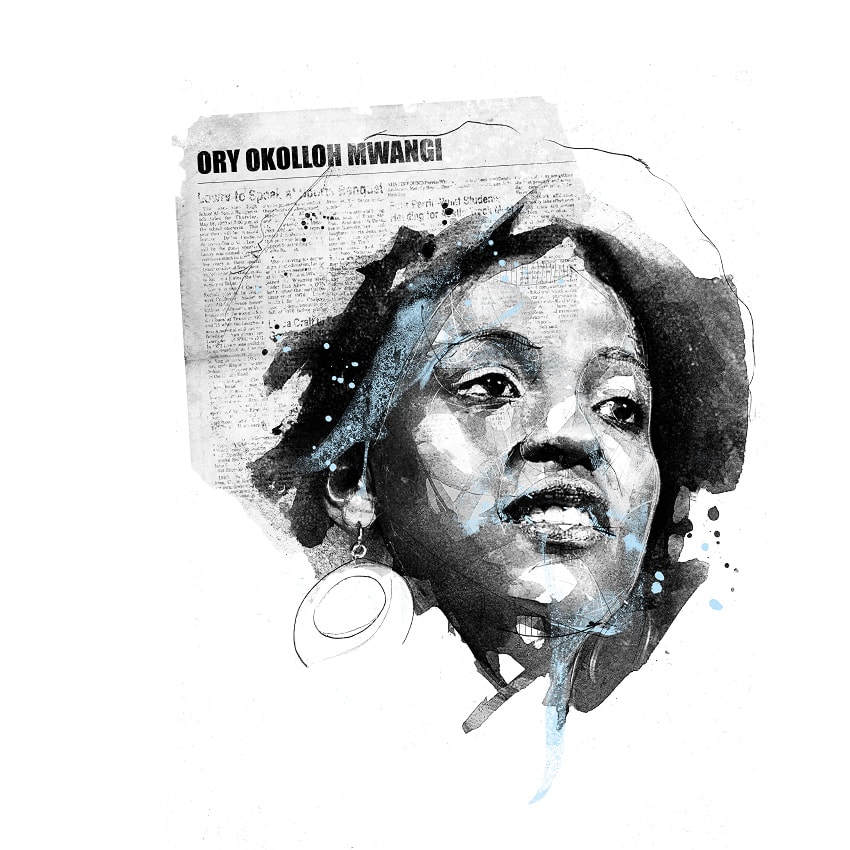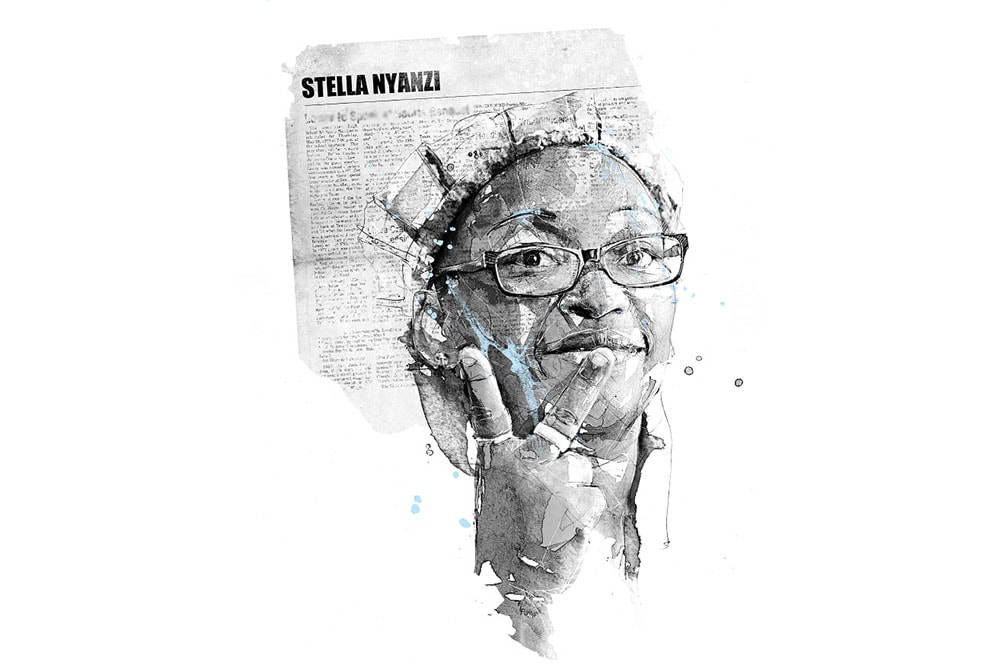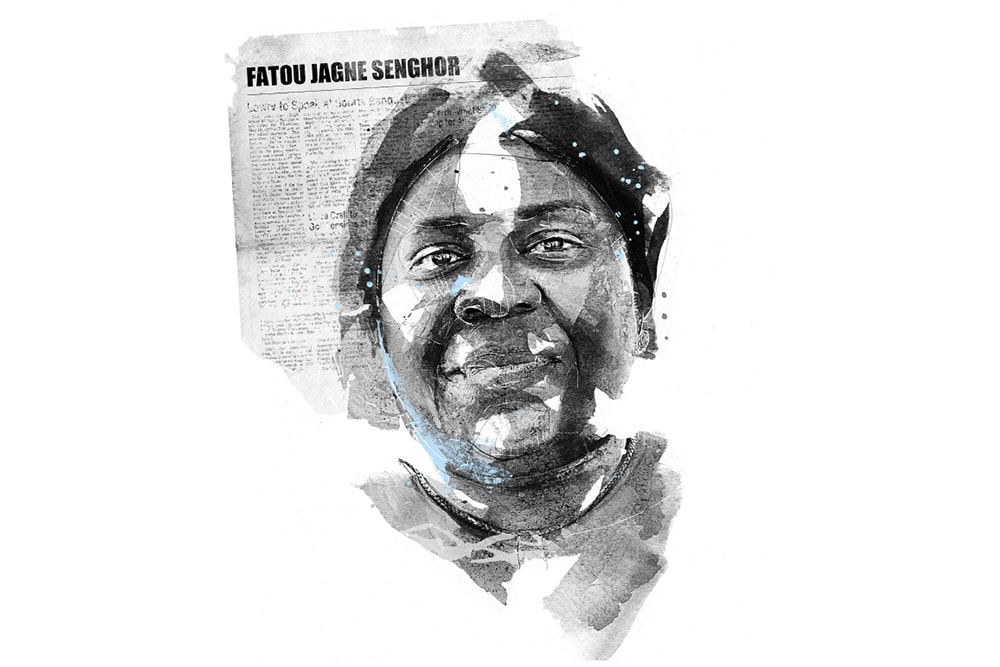If you rely solely on digital footprints, you might not be aware of Zoe Titus's extensive contribution to the media rights landscape on the African continent over two decades. For Titus, her work has always been about getting the work done, often behind the scenes.
“Never, never undermine the importance of people who do not necessarily agree with you. […] From my 22 or 23 years in this industry, you cannot work in isolation. The more partners you have, and the more diverse those partners are, the better your campaigns will be.”
Titus’s thoughtful and soft-spoken demeanour might conceal the passion and commitment with which she has fought for media freedom, freedom of expression and access to information rights on the African continent, but those who have worked with her know and recognise her formidable energy and drive. The immense respect she commands is evidenced by the numerous times she has been selected to participate as a speaker on the local, continental and international platforms on various issues related to media freedom, freedom of expression and access to information.
Two years after being appointed strategic coordinator of the Namibia Media Trust (NMT), Titus set a precedent by getting the organisation to be the first African organisation to make a financial contribution towards the UNESCO Guillermo Cano World Press Freedom Prize. “UNESCO is a longstanding partner and we are proud, as an African organisation, to showcase our commitment to press freedom through this effort,” she explained.
On her promotion to her position as director of the NMT, Titus reiterated her commitment to mobilise for change: “I hope to initiate and sustain – through collaboration and other means – actions that advance the right to media freedom, freedom of expression and access to information in Namibia and beyond its borders.”
In keeping to her commitment to take the work of NMT beyond borders, she was instrumental in facilitating an advocacy mission to Namibia by the African Commission on Human and Peoples’ Rights (ACHPR) former Special Rapporteur Lawrence Mute. During his visit, he participated in the southern African consultation on the review of the Declaration of Principles of Freedom of Expression and Access to Information in Africa with regional experts and activists. The inclusion of input from the southern African region was driven by Titus on realising that other regions had provided input into the revision process with the exclusion of southern African organisations. The revised Declaration was adopted in November 2019 during the 65th Ordinary Session of the ACHPR.
Her passion for the media and its potential to make a positive and profound change in the lives of people was ignited at The Namibian where she worked as a reporter before landing a promotion as editor of the publication’s The Weekender in 1995 – a job she held until 2000.
Her commitment was further entrenched when she joined the secretariat of the Media Institute of Southern Africa, where she became passionately involved in promoting media rights across a continent still grappling with freedom of expression and freedom of the media. Titus went to MISA-Regional in 2001, as the regional programmes manager, before being appointed acting regional director. She began heading the organisation in 2012.
During her 15 years at MISA-Regional, Titus spearheaded a number of projects designed to provide practical support to journalists in danger. Those who know Titus are familiar with her approach in developing these campaigns. Titus spends time carefully reflecting and mulling over the issues that impact on journalists, their work and the collective media sector, before crafting a solution. One such campaign is the SADC (South Africa Development Community) Journalists Under Fire campaign.
While collating media freedom violations reports on the persecution of journalists in Zimbabwe during the early 2000s, Titus had recognised the need for a focused and sustained advocacy campaign to fight attacks from state organs and repressive media laws. Her reflections gave birth to the Zimbabwe Journalists Under Fire Campaign. It took off, and was expanded into the successful SADC Journalists Under Fire campaign. Through this campaign, MISA-Regional was able to ensure a coordinated approach to the advocacy work of its chapters, which in turn made the lobbying more effective in the SADC region. It also had the profound impact of harnessing increased regional support.
With all that she does, perhaps Titus is best known for working on regional and continental policy frameworks that shape the freedom of expression, media freedom, and access to information (ATI) landscape. During her tenure as director of MISA-Regional, one of Titus’s most noteworthy contributions has been in the arena of pushing for access to information legislation across the continent, through the establishment of the African Platform on Access to Information. The idea of building a continental network developed during MISA’s work on the status and implementation of ATI legislation in the chapter countries.
This kind of long-term, multi-level concept is ignited during her moments of reflection. Titus puts the proposal into motion, by driving the process in collaboration with relevant partners and ensuring collective thinking. As she explains: “From my 22 or 23 years in this industry, you cannot work in isolation. The more partners you have and the more diverse those partners are, the better your campaigns will be, because you can get a lot done with very little resources. Never, never undermine the importance of people who disagree with you,” she adds.
MISA was an important addition to the IFEX network, bringing the interests of the region to the table and sharing best practices with the members. Titus was on IFEX Council for four years, and was also Chair of the Steering Committee of the African Freedom of Expression Exchange (AFEX).
While MISA was the secretariat for the African Platform on Access to Information (APAI) working group, providing structural support, it was the work of the collective group that provided the needed leverage to increase the number of countries adopting ATI laws. From just a handful, the work of APAI has seen an increase to 23 African countries with enacted freedom on information laws to-date. The work of APAI has also culminated in the UN officially recognising September 28 as the Universal Day of Access to Information.
Speaking with Paula Fray on an episode of Change Voices, a weekly podcast that focusses on leadership through the eyes of diverse women from Africa and beyond, Titus was asked about mobilising for social change. She emphasised the need to include marginalised voices, groups on the fringes, as well as those of women.
Her achievements spanning over a decade will benefit future generations and her reason for fighting so hard is because she believes that every citizen has a right to a free, independent, pluralistic and diverse press: “The media is central to our lives. The way in which we receive our information is via one or other media platform […] In order for them to do their work, they need an enabling environment, which is why press freedom is fundamentally important for our lives, for every citizen really.”
She emphasises that you need to have a long-term view. Advocacy isn’t quick and easy. How does she sustain her energy? How does she keep herself going?
“Sometimes it is very difficult. You remind yourself that you are working for the greater good. Network. Surround yourself with people that are like-minded, but also who challenge you. If you look around, especially in the press freedom, freedom of expression arena, it is a male-dominated arena, and at times the work of women, even women leaders, is undervalued. So that network of support is incredibly important. Pace yourself. Learn to say no.”
In addition to all her work, Titus serves in advisory capacities to several regional and international initiatives, including ARISA (the Advancing Rights in Southern Africa project). She is also co-founder of the single massive open online teaching platform on media policy in Africa, the Jeanette Minnie Memorial Course in African Media Policy in the Digital Age, hosted by the Link Centre and Wits online platform, edX. Deeply touched by Minnie’s death, this course is Titus’s uniquely enduring way to pay tribute to her friend, colleague and mentor.
Illustration by Florian Nicolle
